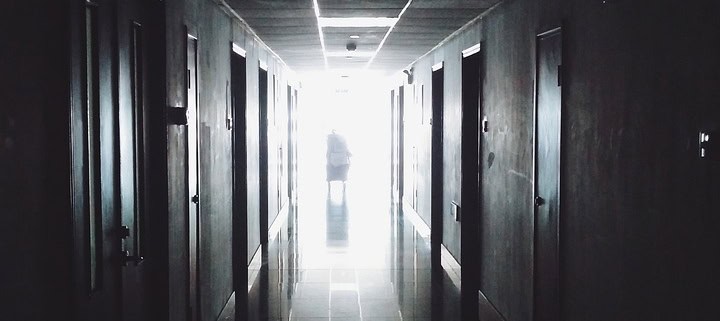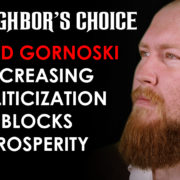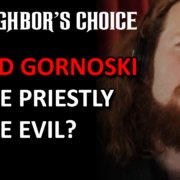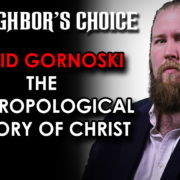The Answer to Social Iatrogenesis
“The medical establishment has become a major threat to health. The disabling impact of professional control over medicine has reached the proportions of an epidemic,” philosopher Ivan Illich writes in the opening passage of his book Medical Nemesis. These words ring true, especially given how much our current world crisis has to do with public health institutions and the manner in which they operate during the pandemic. Illich continues:
During the last generations the medical monopoly over health care has expanded without checks and has encroached on our liberty with regard to our own bodies. Society had transferred to physicians the exclusive right to determine what constitutes sickness, who is or might become sick, and what shall be done to such people…
A professional and physician-based health-care system that has grown beyond critical bounds is sickening for three reasons: it must produce clinical damage that outweighs its potential benefits; it cannot but enhance even as it obscures the political conditions that render society unhealthy; and it tends to mystify and to expropriate the power of the individual to heal himself and to shape his or her environment.
Despite Illich’s dubious stances on a lot of issues–for example, his positive stance on birth control (something that got him into trouble with the Catholic church hierarchy)–his critique of the medical establishment is undeniably a must-read for a number of reasons. One of those reasons is the anthropological perspective that Illich brings in part 2 of Medical Nemesis.
“The Greeks’ only word for ‘drug’–pharmakon–did not distinguish between the power to cure and the power to kill,” Illich writes. The prevailing thought in this age seems to be this false notion that medicine is amoral and purely scientific, but as we will see through the words of Illich, nothing can be further from the truth. “Medicine is a moral enterprise and therefore inevitably gives content to good and evil.”
In ancient times, witch doctors included in their medicinal skills, the ability to sacrifice or expel people in order to bring about a curative catharsis. Jesus calls this practice “casting out Satan with the power of Satan.”1 In current times, this practice can be seen in many tribal cultures that are isolated from the greater industrialized world.2
Illich writes, “Medicine, like all crusades, creates a new group of outsiders each time it makes a new diagnosis sick.” Not only did medicine constitute morality, it was also very much a religious application. It can also be argued–as Illich does–that the religious aura surrounding medicine still permeates the air of these so-called secular times, especially in light of a new caste-based world society based on who is vaccinated and who is unvaccinated.
In Medical Nemesis, Illich makes the case for an epidemic of iatrogenic disease which “includes only illnesses that would not have come about if sound and professionally recommended treatment had not been applied.” He further illustrates:
”Disabling nondiseases result from the medical treatment of nonexistent diseases and are on the increase: the number of children disabled in Massachusetts through the treatment of cardiac nondisease exceeds the number of children under effective treatment for real cardiac disease.”
He continues:
Social iatrogenesis designates a category of etiology that encompasses many forms. It obtains when medical bureaucracy creates ill-health by increasing stress, by multiplying disabling dependence, by generating new painful needs, by lowering the levels of tolerance for discomfort or pain, by reducing the leeway that people are wont to concede to an individual when he suffers, and by abolishing even the right to self care. Social iatrogenesis is at work when health care is turned into a standardized item, a staple; when all suffering is “hospitalized” and homes become inhospitable to birth, sickness, and death; when the language in which people could experience their bodies is turned into bureaucratic gobbledegook; or when suffering, mourning, and healing outside the patient role are labeled a form of deviance.
To those of us who have been conditioned from birth by certain institutions into complete submission toward the normative medical practices of our day, Illich’s words, though they might sound extreme, induces necessary and urgent skepticism that has been shown to be lacking in public discourses for the last two or three years.
It should bother us that medical experts, bestowed with power from states and big corporations, have hidden important information relating to adverse effects from the COVID-19 vaccines and boosters.3 4 It should bother us even more that a large percentage of people are completely okay with these revelations and are now doubling down on their faith in the medical industry. This is nothing new; it has gone on for ages. Here we must come back to the religious aspect of medicine, otherwise, we will continue to see this phenomenon grow beyond all sense of rationality.
The ancient notion of Pharmakon is quite obviously alive, despite our insistence to the contrary, as is the habit of so many influenced by secular indoctrination. What must be asserted is that the medical industry has refined its shamanic practices under the guise of demystified religion and is now hammering its creed into the minds of the masses through mainstream media. To counter this mass indoctrination, it is necessary to pay attention to the shunned–the outcasts whose voices are being shut out from public discourse in fear of discrediting the narrative.
To hear and magnify the voices of those injured by the vaccines, is the Jesus approach. It is the approach, as proven by the Gospel texts, that shatters the prevailing myth and empowers the marginalized. The legacy media and powerful influencers, who are backed by sponsorship deals by Big Pharma companies like Pfizer and Moderna, fear the voices of the outcast; the refusal to publicly acknowledge them confirms their fear.
In the Gospel of John, we read:
Now there is in Jerusalem by the Sheep Gate a pool, which is called in Hebrew, Bethesda, having five porches. In these lay a great multitude of sick people, blind, lame, paralyzed, waiting for the moving of the water. For an angel went down at a certain time into the pool and stirred up the water; then whoever stepped in first, after the stirring of the water, was made well of whatever disease he had. Now a certain man was there who had an infirmity thirty-eight years. When Jesus saw him lying there, and knew that he already had been in that condition a long time, He said to him, “Do you want to be made well?”
The sick man answered Him, “Sir, I have no man to put me into the pool when the water is stirred up; but while I am coming, another steps down before me.”
Jesus said to him, “Rise, take up your bed and walk.” And immediately the man was made well, took up his bed, and walked.
And that day was the Sabbath. The Jews therefore said to him who was cured, “It is the Sabbath; it is not lawful for you to carry your bed.”
He answered them, “He who made me well said to me, ‘Take up your bed and walk.’”
Then they asked him, “Who is the Man who said to you, ‘Take up your bed and walk’?” But the one who was healed did not know who it was, for Jesus had withdrawn, a multitude being in that place. Afterward Jesus found him in the temple, and said to him, “See, you have been made well. Sin no more, lest a worse thing come upon you.”
The man departed and told the Jews that it was Jesus who had made him well.
For this reason the Jews persecuted Jesus, and sought to kill Him, because He had done these things on the Sabbath.5
The dynamic between the healing practice at the Bethesda pool and the gatekeepers who stood nearby and forbade certain actions can be seen as an ancient variation of social iatrogenesis. Jesus here is embodying the independent action of healing without boundaries and institutional permission or formulation. Rather than stand by and watch as the sick pile up in numbers beside the pool, Christ took it upon Himself to bring forward a new technique of healing that ended up making the disabled man whole.
Jesus’ action at the pool of Bethesda should serve as an example of how we need to rethink age-old practices of medicine and how we can apply independent thought in bringing forward bold changes that heal people as opposed to making them more sick and dependent. The principle that underlies Christ’s healing is that it doesn’t create another class of outcasts. The narrative, instead, is short-circuited, causing the gatekeepers to go after the healer, thus discrediting their superficial roles as experts and causing a massive demystification of the prevailing religious force of the day.
Just as Christ encountered persecution, we too will encounter gaslighting and censorship, but at the end of the day, these will seem minor to the complete joy of revolutionary healing.
- Rene Girard, I See Satan Fall Like Lightning
- https://www.usatoday.com/story/news/world/2017/09/26/witch-doctors-sacrificing-children-drought-stricken-african-country-uganda/703756001/
- https://www.theepochtimes.com/health/all-three-vaccines-are-breaking-through-emails-show-discussion-of-vaccine-failure-among-health-officials_4974246.html
- https://childrenshealthdefense.org/defender/cnn-moderna-fda-cdc-covid-boosters/
- John 5:2-16, New King James Version
Buy Surit Dasgupta’s book The Reenchanted here.










Leave a Reply
Want to join the discussion?Feel free to contribute!